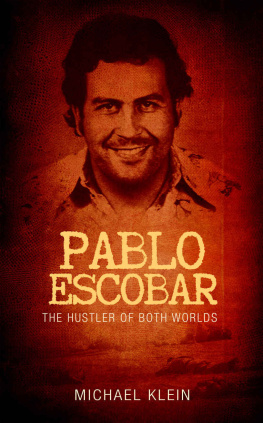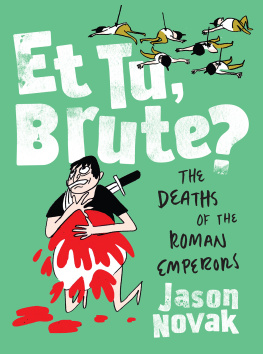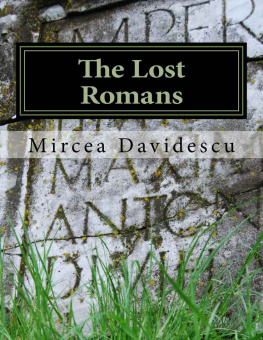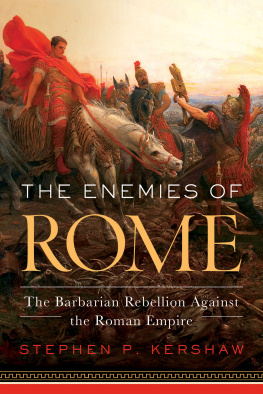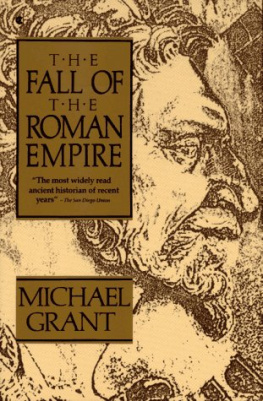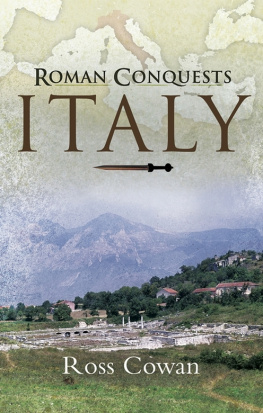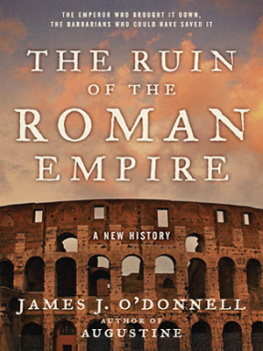The Rise and Fall of The Roman Empire - The Clashes of Kings and Emperors Claiming The Crown
By Michael Klein
Copyright 2016 WE CANT BE BEAT LLC
Table of Contents
Introduction
You might have decided to hide that secret stash of history books in case someone comes over and quizzes you about the key differences between the Roman Empire and the Holy Roman Empire. They might start a debate about whether the United States can be considered an empire of the likes that the Romans built. It's also possible you proudly display some of the books you've read hoping that one day someone will strike up that conversation about the lost legions or clashes between Rome and Judea. In the course of the discussion, even in the preludes, you may find that your dialogue covers certain takeaways about the Roman Empire. You might even notice that the person you're having a conversation with has a romantic view of the Roman dream, embracing their thirst for triumph, majesty, and the honorable Roman 'thing to do' in many situations.
Maybe your debating sparring partner starts demonstrating feats of showmanship like a gladiator mercilessly dragging an opponent around an imaginary arena. Or they might wonder what it would have been like for Marc Anthony at the moment he realized during the Ides of March that he failed to warn Caesar in time about the fateful plot to kill him. Or maybe they heard about some of the famous battles like the Punic Wars fought between Carthage and Rome before Rome even established itself as an empire. They might delight in how Hannibal would stop at nothing in his campaign of vengeance and how the Romans finally defeated the Carthaginians. They might know about the rape of Lucretia or about the first triumvirate. They may mention the Gallic Wars or know about Caesar's bitter rivalry with Pompey the Great and the crossing of the Rubicon. They might mention the fierce raids by the Goths and other tribes from the Danube and Rhine.
Yet do they consider how Roman virtues and moralities around social issues and the debates and conflicts of specific times along their vast history shaped their world and how they changed over time? In considering the entire Roman Empire, it can seem difficult to find any other common threads besides Christianity. The formation of the Holy Roman Empire is also often raised, but what led to the rifts? Why do we often hear about the Germanic tribes rather than the Kings of the Franks who allied with the Pope in a time of need when the Roman Empire didn't help? It makes us wonder if alliances drew the ancient world together or if it depended on the way that it was presented to the Roman people who were often guided by an unwritten complex code of customs founded on the quality of fides and mos maiorum . Consensus and moderation was required in the preservation of their mos maiorum, which evolved over time. Honor was considered the fire in their bones. Yet the Romans have been described also as not easy to grasp since they did not idealize so much as transform and in so doing may be seen in contradictory fashions that captivate us.
There are various misconceptions about the Roman Empire. For one, Rome simply imposed its will everywhere culturally in a desperate machine-like imperialism and redesigned or eradicated local traditions in Romanisation efforts. They converted people to Roman Catholicism with much urgency during the Holy Roman Empire, but this was not characteristic during different historical periods. Another is that Rome simply molded the world to its own purposes. This ignores all the grey area. What about interrelations that existed and developed or severed relationships with the changing priorities of Romanness , the identity we will explore in this book, over time? If the decline and fall of the Roman Empire in 476 CE held such high importance to the future of the British Empire and to the story of Europe, then why have some believed the misconception that a Dark Ages followed the fall of the Western Roman Empire? Out of the ashes of the empire that was often highly influenced by the Church and reinforced the importance of the State over the individual came a European embrace of freedom in the early development of the countries we see today.
Many have read about the Roman Empire and often haven't questioned various claims. Was the Holy Roman Empire truly established on the will of one man (King of the Franks Charlemagne) and lacked no solid foundation? How did estrangement between the Papacy and the Byzantine Empire, which established itself in 300 CE before the fall of the Western Roman Empire and endured until 1453, end up in the East-West Schism? Did Napoleon destroy the precursor to modern Germany and Italy, the Holy Roman Empire, in 1806 to appropriate its legacy or to destroy its significance? Finally, how did Cicero, as Thomas Jefferson explicitly named as one of the handful of major figures who contributed to a tradition of public right that informed the United States Declaration of Independence, influence and describe the Roman Empire?
Rome has often been portrayed as a symbol of a success story or the symbol of a unifying force. In working through these inquiries, representations and misconceptions in these pages, the underlying idea of a certain Romanness will emerge as a way to consider what made Romans Roman, just as we might wonder today at what makes an American identity. Was their patriarchal society geared from the start toward an aggressive ideal that held them in perpetuity until it lost favor with those who ultimately resisted it successfully moving history in a direction that would grow conceptually to embrace new identities and ideals? How did their identity unify the Romans and sometimes tear them apart? Did the very common models of behavior that Roman ruling classes and patricians promoted shift over the extensive history of the Roman Empire leading to what unified the Romans and periodically tore them apart?
It did and this explains often why we are fascinated with the Romans. The lingering impact that the Roman Empire has on those who like to draw parallels between America and Rome or those who want to memorialize the glory of the Roman times may have more to do with a need to align with dominant powers of another time and to prevent a recurrence in suffering their fate. Despite how often the parallels are made and refuted, America and Rome as dominant powers are often seen as suffering from moral decay and beholden to hubris and pride. While the nature of American and Roman global influence may differ, this book will not so much answer the question whether the Romans were a version of ourselves, but instead acknowledge the debate and focus, just as today we see people grapple with how an unfolding identity occurs despite history marching on politically and militarily in America, how we might develop a better understanding of what unified them and what had the potential of tearing them apart as we explore different periods of their history.
One of the most significant factors that colors our ability to look at the Roman Empire separately from the dominant superpower status of America is that many who look to the Roman Empire for answers do so with an emotional attachment to a perceived assumption that by noticing similarities between the two, then one is fearful of how 'being like Rome' may impact our own lives. If they fell, then we can. That proves difficult to remove from the mind if we only look at the Roman Empire from that perspective. Since it is uncomfortable to consider that an empire can fall, then we might not see what unified and tore them apart as separate from our own modern day experiences.
America adopted many concepts about government and institutions from the Roman Empire including the Roman term Senate, although our methods of selecting Senators vary from theirs. From ancient thinkers who have generously influenced political thought, like the Greek historian and statesman Polybius (c. 204-122 BCE), the founding fathers of America learned some early clues about the importance of separation of powers, checks and balances, and federalism. From the Roman statesman and scholar Cicero (106-43 BCE), they learned the importance of personal liberty, service to one's community as an individual's highest purpose, and how rule of law could protect natural rights. He was a devoted defender of the
Next page

